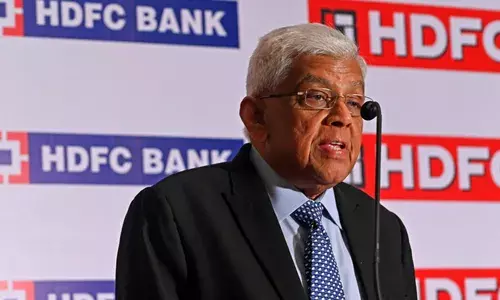9 April 2023 4:00 PM IST
Summary
- India is not immune to the global shocks
- India has the third largest number of startups after the US and China
Mumbai: Global headwinds are likely to slow down India's GDP growth, but the country is more resilient than many large economies, HDFC chairman Deepak Parekh said on Saturday.
India has enough tailwinds with political stability, vaccine security, food security, a robust domestic consumption-based economy, digitisation initiatives and a robust regulatory system for the financial sector, Parekh said at SPJIMR's Centre for Family Business and Entrepreneurship (CFBE) event.
"India is not immune to the global shocks but has proved to be more resilient than many large economies. For sure, India's GDP growth will slow down because of global headwinds," he said.
For startups, he said, "many investors still have plenty of dry powder for good, innovative ideas, but the days of cash burn and high valuations are behind us".
Entrepreneurship in India has exploded because of the conducive startup environment in the country and India has the third largest number of startups after the US and China, Parekh said.
"In the recent period, geopolitics has dominated over geoeconomics with spillover impacts on trade, services, technology, capital flows and even in the mobility of the labour force.
"There is immense distrust amongst countries at a time when we most need global cooperation to solve common pressing issues like global supply chains, global warming, cyber threats, money-laundering, data privacy, responsible use of artificial intelligence amongst several others," he said.
Parekh further said that the other critical global issue of the Western world has been the sudden change from years of quantitative easing and negative interest rates to a sharp rise in interest rates to combat inflation.
"This has resulted in a cost of living crisis across many advanced economies. In India, based on yesterday's (RBI policy) announcement, we are lucky to have finally got a pause in the rising interest rate cycle," he added.
Talking about the family business, Parekh said, the most significant change seen in family businesses today has been the investment in the education of the next generation.
"This is the single biggest game changer. Better education has helped bring in scale, vision, professionalism and diversification in businesses. Armed with better education, there is a deeper understanding of changing market realities, which helps family businesses stay relevant," he added.
Minister of Road Transport and Highways Nitin Gadkari, who also attended the event, said that the country needs education and research institutes that can guide and give appropriate vision to the youth.
"In order to make the country truly self-reliant, there is a need to develop and work on such technology that can help reduce imports," the minister added.
Gadkari also urged young entrepreneurs to focus on rural and tribal areas, which have immense potential.
"The rural and tribal areas have enough raw materials that can be utilised to reduce imports through technology. I urge entrepreneurs to use such technology that will help in reducing our dependence on imports and also help in wealth and jobs creation," Gadkari added.
 Learn & Earn
Learn & Earn  Home
Home
